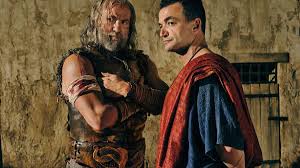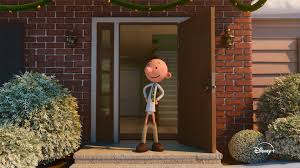Lolo and the Kid 2024 Movie Review
Hold on for a cold-open bait-and-switch: The story begins from the point-of-view of Gemma (Meryll Soriano) and Allan (Joem Bascon), a couple living in a nice, upper-middle-class home dampened with an air of melancholy. They’re childless, and it’s pretty clear that they wish they weren’t. They look out the window and see Lolo and Kid – that’s his name, just Kid; he’s maybe six or seven, by my estimation – on the sidewalk. Hours later, they’re still on the sidewalk, sleeping, so Gemma and Allan invite them in and, about 12 seconds after all the sad stories are shared, say they’d like to adopt Kid. OK, sure. We could leap through that plot hole and be critical of this couple for not really vetting the situation as thoroughly as we might, but let’s just chalk them up as sympathetically sad and desperate and move on.
Well, Lolo, his eyes wide and droopy like the saddest old dog ever, agrees to the adoption, and accepts an envelope full of cash from Allan – not as payment, but to help Lolo get along. And after a tearful goodbye sopped in sad pianos on the soundtrack, off goes Lolo forever, and everyone lives happily ever after. No! Actually, Lolo shows up at the gate after dark and meets Kid, whose arms are full of Gemma and Allan’s valuables. They scamper off, and the rest of the movie is from their POV. That poor couple was duped, and so were we, sort of. This is Lolo’s play, see. They target sad sacks with money and exploit their emotional vulnerabilities for their own material gain. It’s almost funny until you think about it for a minute and see their behavior for what it is: ruthless and predatory.
But at least Lolo and Kid are really cute together, right? Uh huh. They take the stolen goods and pawn them, then blow the money on new clothes, amusement park rides, ice cream cones, and Cokes for Kid and beers for Lolo at the karaoke bar, where Lolo sings Kenny Rogers’ “Through the Years.” It’s his favorite song, and you’ll hear it so many times during this movie, by the time the credits roll, I guarantee it won’t be yours. Then they flop at a dingy motel for the night, and start the whole shebang over when the money runs out. As we watch them work through their cyclical procedure, we learn that Kid doesn’t know how to read, and kind of wants to go to school. Meanwhile, Lolo veers in and out of self-awareness, occasionally falling into an existential-crisis state where he realizes he’s exploiting a child, starts feeling the weight of his conscience and understands this situation just can’t continue forever. There’s little doubt he loves loves loves Kid, and Kid loves loves loves him back. Things have to change, but will they? I kinda feel like the movie wouldn’t exist if they didn’t.
Lolo is doggedly sentimental, to the point where one almost feels the need to dig in and resist its incessant sappiness. It will HAVE your tears and DRINK them by the gallon or DIE TRYING. (Oh god, that flashback sequence tries so hard to bust the plumbing and get the waterworks gushing, it’s almost funny.) The film works better when it’s a hangout movie of sorts, in scenes where Lolo and Kid live a fun and carefree life that allows bits of comedy to fight their way through the melodrama. But inevitably – and predictably – the fear of the future looms large, as Lolo’s increasingly frequent contemplations point the plot toward a rather obvious conclusion, one that ends up being more mawkish than poignant. But hey, it’s better than being unpoignant, right?
And so the film is likable enough, writer-director Benedict Mique wisely leaning on his lead actors and balancing the heavy syrup with a reasonably engaging depiction of the deviant thrills of the hustler’s life. The screenplay’s omnipresent plausibility issues don’t quite sink it: Lolo is exquisitely great at picking easy marks for their scam, isn’t he, as if there are vulnerable, rich-ass dumbasses on every other corner of Manila, none of whom ever call the cops or consult with an adoption agency before willy-nilly taking in a child off the street. We could poke holes in this plot all day, but that’s a level of harsh criticism that the movie frankly doesn’t really deserve. It aims for your feelgood and feelsad centers and hits them squarely, but not so aggressively that you’ll want to hit back.




